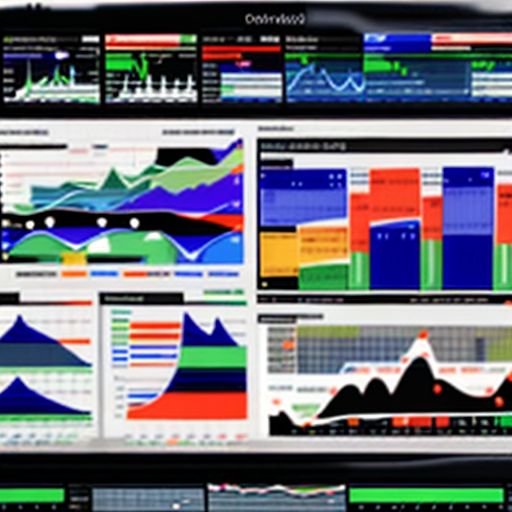Starting and running a small business is no easy feat. Between managing inventory, chasing invoices, and forecasting cash flow, it can feel like you’re juggling a million things at once. That’s where financial software comes in – it’s your secret weapon to streamline operations, gain financial clarity, and make smarter business decisions.
Finding the right software can seem overwhelming with so many options available. This comprehensive guide will walk you through everything you need to know about Financial Software For Small Businesses, from understanding key features to choosing the perfect solution for your unique needs.
What is Financial Software For Small Business?
Financial software for small businesses encompasses a range of tools designed to simplify and automate financial tasks. These tools can help you manage:
- Accounting: Track income and expenses, generate invoices, reconcile bank statements, and generate financial reports like profit and loss statements and balance sheets.
- Invoicing and Billing: Create and send professional invoices, track payments, and manage late payments.
- Expense Tracking: Monitor business expenses, categorize transactions, and capture receipts digitally.
- Inventory Management: Track inventory levels, receive alerts for low stock, and manage purchase orders.
- Financial Reporting: Generate customizable reports to gain insights into your business’s financial health.
financial.daohocthuat.com/wp-content/uploads/2024/07/accounting-software-dashboard-669602.jpg" alt="Small Business Accounting Software Dashboard" width="512" height="512">Small Business Accounting Software Dashboard
Why is Financial Software Essential for Small Businesses?
Investing in reliable financial software offers several benefits for small business owners:
1. Saves Time and Reduces Errors
Automating tasks like data entry, invoice generation, and reconciliation saves you countless hours, freeing up time to focus on growing your business. Plus, it minimizes the risk of manual errors, ensuring accurate financial records.
2. Improves Financial Visibility
Gain real-time insights into your cash flow, profitability, and overall financial health. This allows you to identify potential issues early on and make proactive decisions.
3. Facilitates Better Decision Making
With access to comprehensive financial data, you can analyze trends, identify areas for improvement, and make informed decisions about pricing, inventory, and investments.
4. Streamlines Tax Compliance
Many financial software options offer built-in tax features to help you categorize expenses, track sales tax, and generate reports required for filing taxes, making tax time less stressful.
Key Features to Look for in Financial Software
When choosing financial software, consider these essential features:
1. User-Friendliness
Opt for intuitive software with a clean interface and easy navigation, even if you don’t have extensive accounting knowledge.
2. Scalability
Select software that can grow with your business, accommodating increased transaction volumes and more complex financial needs as you expand.
3. Integrations
Ensure the software integrates seamlessly with your existing business tools, like your bank account, payment gateway, or e-commerce platform, for a centralized workflow.
4. Mobile Accessibility
Choose cloud-based software with a mobile app to access your financial data, create invoices, and track expenses from anywhere, anytime.
5. Pricing
Evaluate pricing plans carefully, considering features, number of users, and data storage limits to find a solution that fits your budget.
Frequently Asked Questions about Financial Software For Small Businesses
Here are answers to some common questions small business owners have about financial software:
1. What is the difference between accounting software and bookkeeping software?
Bookkeeping software focuses on recording daily transactions, while accounting software offers a broader range of features, including financial reporting, analysis, and tax tools. Many software solutions combine both bookkeeping and accounting functionalities.
2. Do I need a dedicated accountant if I use financial software?
While financial software simplifies many tasks, having a professional accountant can still be beneficial. They can provide valuable advice, help with tax planning and compliance, and offer strategic financial guidance.
3. What is cloud-based accounting software?
Cloud-based software stores your financial data securely online, allowing you to access it from anywhere with an internet connection. It eliminates the need for installing software on individual computers and often includes automatic data backups.
Conclusion
Choosing the right financial software is a crucial decision for small businesses. By automating tasks, improving financial visibility, and providing valuable insights, it empowers you to make informed decisions and focus on what matters most – growing your business. Take time to assess your needs, explore different options, and find the perfect software solution to support your financial success.
